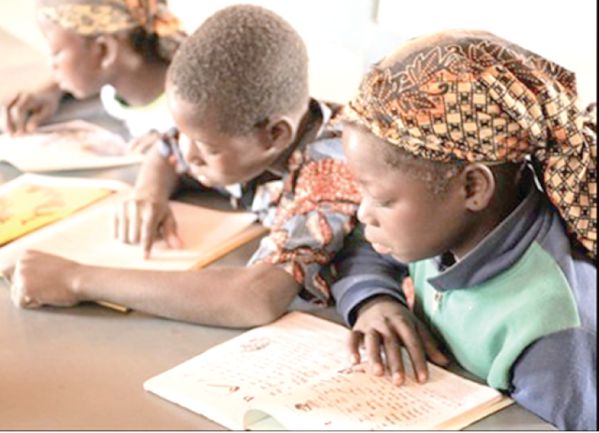
‘Reading, o reading! where art thou gone?’
In her student days, Winnie had the privilege of being driven to Accra by her professor.
Picking up the tune of a song on the radio, Winnie began singing.
Soon, Prof. addressed her saying, “Winnie, if you had to sing for a living, you would starve!” Having eliminated bass, Prof was not sure which of the other three parts Winnie was singing in; treble which has now been rechristened “soprano,” alto or tenor! He found Winnie’s singing simply beautiful cacophony!
Starvation?
While Ghana has produced many musicians who are not starving, I have wondered what the Prof. would have said if Winnie had indicated she aspired to writing for a living.
From my experience of having authored two books, Leadership and the Challenges of Command” in 2003 and Kofi Chokosi Speaks from Archaeology to Zoology, in 2017, it appears to me that borrowing from Prof. and substituting my name for Winnie, Prof. may have said “Dan, if you had to write for a living, you would starve.” However, unlike Winnie who would starve because of her voice, I would starve probably not because of poor writing, but because of poor patronage of books in Ghana.
Recently, while chatting with a professor, I stated that students do not read the way we did as students.
To my surprise, Prof. shot back asking “do we read ourselves now as parents? Parents have replaced reading with politics.”
For over a generation now, the reading culture which our parents bequeathed us with has been replaced by a culture of politics of insults and invectives and total disrespect for adults and authority!”
For about two decades after independence, we had an educational system which made it possible for pupils from villages to qualify for any of the top secondary schools in Ghana at the Common Entrance examination.
Today, it will be next to impossible for a village pupil to qualify at the BECE for any top school.
This is because the rural areas have been so neglected and starved of basic necessities such as electricity and water to the point that teachers refuse postings to such areas.
African Ranking
In a recent ranking of educational standards in Africa, Ghana did not feature in the top 10. Zimbabwe was adjudged the most educated African country with a literacy rate of 90 per cent. Kenya came fourth with 85 per cent.
Having lived in Kenya recently, I was not surprised. On Saturdays at Malls in Nairobi, I was amazed and marveled at children as young as five going through books at bookshops with rapt attention. Parents would help them make their selections.
I also observed that in addition to imported books, many books were published locally. This contrasts with the situation here in Ghana.
Publishing outside
Here, while foreign educational books imported into Ghana are tax-exempt, paper and the other materials needed to print similar books in Ghana are subjected to tax.
The result is that, books printed in Ghana tend to be more expensive than when they are printed outside.
The result is that, Ghanaian publishers are forced to print their books outside Ghana.
In the process, employment which would have been made available by printing houses in Ghana is lost, thus contributing to the high unemployment situation.
State of education
Sadly, the term “schools under trees” appears to be gaining roots rapidly particularly in the rural and sometimes, not so rural areas! At a school in Tema I watched on TV not long ago, students were shown sitting and writing from the bare floor as they had no tables and chairs!
Media houses such as Joy FM and TV3 in their weekly programme called MISSION, have regularly shown harrowing documentaries of schoolchildren attempting to learn under impossible conditions!
While some walk long distances to the nearest school, others dangerously wade through streams on a daily basis to school and back.
Indeed, some have to cross water bodies in rickety overloaded canoes. Sometimes, I wonder if the powers that be watch the same TV programmes we watch!
Recently, after watching a clip showing a teacher trying to teach students ICT about a computer which they had never seen, a friend of mine donated a laptop to the school!
Again, because of conditions in the rural area, some teachers refuse postings there. The result is that, sometimes a single teacher teaches Primary One to Four!
Way forward
Mahatma Ghandi said that, “there is enough for everybody’s need, but there is not enough for everybody’s greed!” I have stated in earlier writings that administering fellow human beings by government is not rocket science, if governance is done selflessly and humanely.
However, where leadership is driven by greed and heartlessness, then an illiterate and dangerous population is produced. President Kennedy summed up this danger by saying, “If a free society cannot help the many who are poor, it cannot save the few who are rich!”
Conclusion
With good leadership based on simple honesty and humaneness, Ghana can be lifted from the illiteracy we are in now through reading! We can do better than not appearing in the top 10 educated African states.
This is premised on the assumption that rural areas will have basic amenities such as electricity and good drinking water to attract teachers!
The writer is a former CEO, African Peace Support Trainers Association (APSTA)
Nairobi, Kenya.